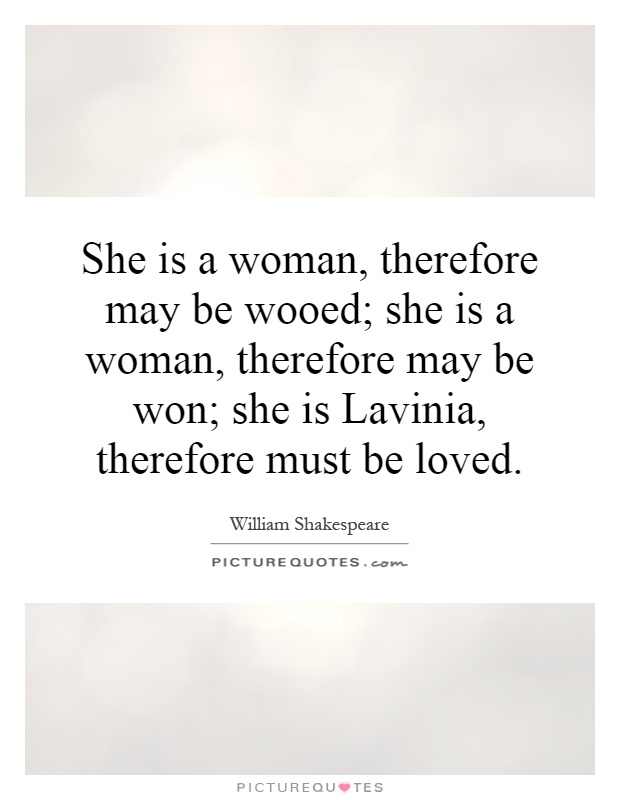She is a woman, therefore may be wooed; she is a woman, therefore may be won; she is Lavinia, therefore must be loved

She is a woman, therefore may be wooed; she is a woman, therefore may be won; she is Lavinia, therefore must be loved
In William Shakespeare's play "Titus Andronicus," the character of Lavinia is a central figure whose tragic fate serves as a catalyst for the events that unfold throughout the story. The quote "She is a woman, therefore may be wooed; she is a woman, therefore may be won; she is Lavinia, therefore must be loved" encapsulates the societal expectations and attitudes towards women during Shakespeare's time, as well as the specific circumstances that Lavinia finds herself in.Lavinia is portrayed as a virtuous and innocent young woman who becomes a victim of the brutal violence and revenge that plagues the world of the play. As the daughter of the noble Roman general Titus Andronicus, Lavinia is expected to embody the qualities of purity, chastity, and obedience that were valued in women of her time. However, her beauty and vulnerability make her a target for the male characters who seek to assert their power and dominance over her.
The quote highlights the idea that women are seen as objects to be pursued and conquered by men, rather than individuals with their own agency and autonomy. Lavinia's identity is defined by her gender, and she is expected to conform to the roles and expectations that society has placed upon her. The repetition of the phrase "she is a woman" emphasizes the limitations and constraints that Lavinia faces as a female character in a patriarchal society.
Despite the tragic circumstances that befall her, Lavinia's character also embodies a sense of resilience and strength in the face of adversity. The quote suggests that she is deserving of love and compassion, even in the midst of her suffering. Through her silence and stoicism, Lavinia becomes a symbol of the enduring power of love and humanity in the face of cruelty and violence.












 Friendship Quotes
Friendship Quotes Love Quotes
Love Quotes Life Quotes
Life Quotes Funny Quotes
Funny Quotes Motivational Quotes
Motivational Quotes Inspirational Quotes
Inspirational Quotes